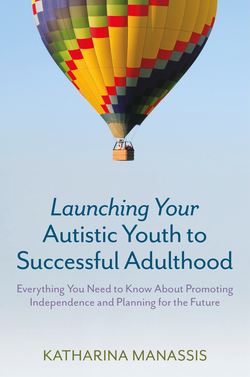Читать книгу Launching Your Autistic Youth to Successful Adulthood - Katharina Manassis - Страница 25
На сайте Литреса книга снята с продажи.
Life beyond goals
ОглавлениеJust as youth on the autism spectrum can become obsessed with certain interests, their parents can sometimes become obsessed with setting goals to further their development. Remember that the transition to adulthood is a gradual process which spans years and transcends any particular goal or set of goals. While helping young people go through this process, we need to celebrate what they are already doing well and already enjoying. Otherwise, life becomes too focused on the destination of adult success, however we define it, and we lose sight of the journey. One young person may not have a permanent job yet, but be a valued member of his church youth group. Another may struggle with social isolation, but be an accomplished pianist. Every autistic youth has strength in at least one area. Reminding the young person of that fact is encouraging for you both, as well as providing a foundation to build upon.
Beyond the relationship with you, your youth also needs time for other relationships and activities. Time for siblings, friends, family meals or outings, personal health activities, and basic chores may not directly relate to goals, but is necessary and worthwhile in the long run. It also conveys a nice, humanistic message to your youth: “You are a valuable person with connections to other valuable people, not just a project.” This message can go a long way towards encouraging self-respect and a balanced, wholesome approach to living.
One aspect of life which is challenging for all transition-aged youth is functioning independently in the adult world. Therefore, in the next chapter we discuss ways of facilitating independence.
TAKE-HOME PEARLS
Before high school ends
• Explore long-term goals with high school courses, cooperative education, or volunteer placements.
• Review what has motivated your youth in the past, and link it to current goals if possible.
• Find out what your youth with ASD values. That’s where they will be most motivated to try something new!
After high school ends
• Make the initial goal something your young adult values.
• When setting goals, try to embed aspects of adult life that you value, include activities outside the house, start with small steps, and tackle one or two things at a time.
• Be prepared to provide some coaching, and perhaps involve professionals or people outside the family if your youth is willing to listen to them.
• Review past successes with your young person, as this is encouraging.
• If a goal is unrealistic, find a less ambitious goal, find a “day job” and keep the fantasy goal as a hobby, or encourage compromising on routines for the sake of the goal.
• When you doubt a goal is achievable but the young adult is motivated, give it a try! It may work out; if not, it is still a good learning experience.
Always
• Communicate with respect for the young person’s autonomy, use scaffolding rather than ordering action, ask questions to get your youth’s input, double check that your youth wants to pursue the goal, create routines to get things started, and try not to sound too worried.
• Take time to celebrate success, and to attend to people and activities which are unrelated to your youth’s goals.
